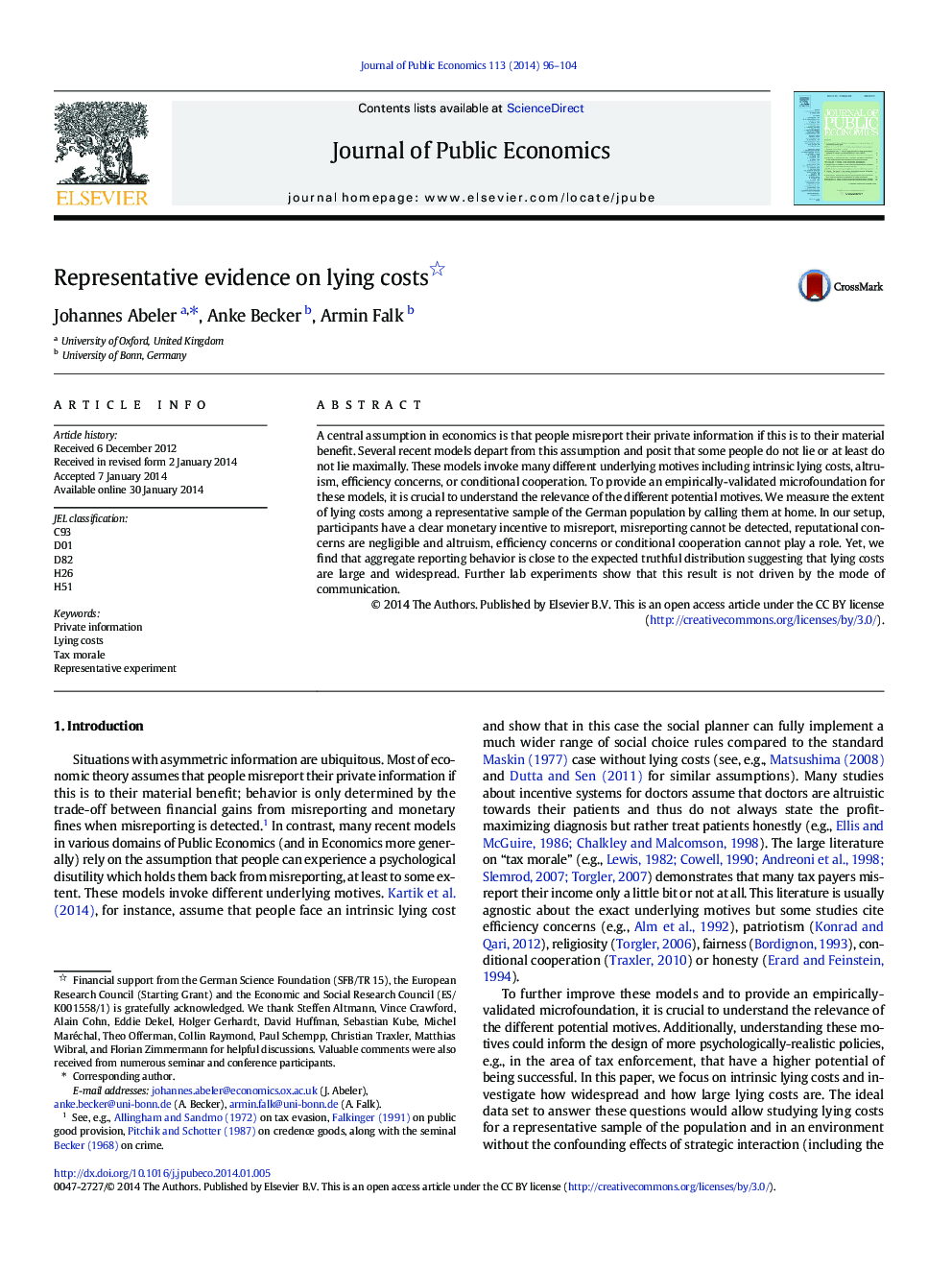| Article ID | Journal | Published Year | Pages | File Type |
|---|---|---|---|---|
| 7370379 | Journal of Public Economics | 2014 | 9 Pages |
Abstract
A central assumption in economics is that people misreport their private information if this is to their material benefit. Several recent models depart from this assumption and posit that some people do not lie or at least do not lie maximally. These models invoke many different underlying motives including intrinsic lying costs, altruism, efficiency concerns, or conditional cooperation. To provide an empirically-validated microfoundation for these models, it is crucial to understand the relevance of the different potential motives. We measure the extent of lying costs among a representative sample of the German population by calling them at home. In our setup, participants have a clear monetary incentive to misreport, misreporting cannot be detected, reputational concerns are negligible and altruism, efficiency concerns or conditional cooperation cannot play a role. Yet, we find that aggregate reporting behavior is close to the expected truthful distribution suggesting that lying costs are large and widespread. Further lab experiments show that this result is not driven by the mode of communication.
Related Topics
Social Sciences and Humanities
Economics, Econometrics and Finance
Economics and Econometrics
Authors
Johannes Abeler, Anke Becker, Armin Falk,
